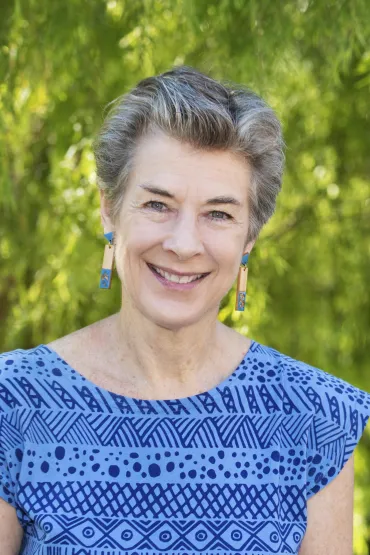Research project title
Objective truths or subjective realities: A model of social and cultural impact assessment to deliver socially, culturally, ecologically and economically sustainable development of Northern Australia
Abstract
The aim of this thesis is to contribute to better policy and practice of social and cultural impact assessment. The overarching research question is: ‘What model of social and cultural impact assessment will deliver socially, culturally, ecologically and economically sustainable development of North Australia, including the ability of Aboriginal people to determine the type, pace and scale of development on their land and seas?’.
A multi-methods research approach includes an audit of impact assessment studies in the Northern Territory (NT) between 1974 and 2018 and 58 key informant interviews with practitioners, regulators, companies, decision-makers and Aboriginal leaders. Given the multidisciplinary nature of impact assessment, the research draws on theoretical frameworks from sociology, psychology, anthropology, economics, political science and human geography.
The thesis starts with a gap analysis of the social, cultural and participative elements of impact assessment in the NT between 1974 and 2018. It explores the dimensions of quality impact assessment, perceived gaps between the ideal and actual practice and links between a quality system and practitioners’ qualifications. It then explores key elements of a model that suits the unique context of North Australia. These elements are values mapping, participative justice and cultural competence.
Finally, the thesis outlines the forces driving and inhibiting institutionalisation of the model. Barriers include a cultural capture of impact assessment by technical scientific approaches and narrow conceptions of sustainability. The thesis concludes that impact assessment fails to meet societal, proponent or practitioners’ expectations. It is seen as costly, inefficient, culturally incompetent and as excluding the values and perspectives of those most affected by development. Social impact assessment suffers from poorly qualified practitioners, a lowly status and lack of agreed methodologies. The consequences are to divorce humans from the socio-ecological ecosystems on which they depend, and which they continue to degrade, and a failure to address a growing trust deficit in regulatory, political and business institutions.
Research interests
Jane Munday is a community engagement and social impact assessment practitioner based in Darwin. Born in Adelaide, she came to the Northern Territory from Melbourne in 1994 and worked in senior government communication and marketing positions with the Northern Territory Government for 10 years. She owned a strategic communication consultancy from 2004 to 2015, with offices in Alice Springs and Darwin, and now works part-time for True North Strategic Communication.
Jane has a Bachelor of Arts (Psychology), Master of Business Administration (Marketing), Graduate Diploma in Public Sector Executive Management and is a former journalist on The Age in Melbourne. She has certificates in public participation and social impact assessment from the International Association for Public Participation (IAP2) and International Association for Impact Assessment (IAIA). Jane is a Graduate of the Australian Institute of Company Directors, Deputy Chair of Territory Natural Resource Management (TNRM), on the NT Attorney-General’s Community Benefit Fund and Secretary of the Northern Territory branch of the Environmental Institute of Australia and New Zealand (EIANZ). She spent four months overseas in 1991 on a Churchill Fellowship studying crisis communication, media and terrorism.
Jane’s particular interests are participative methodologies of social and cultural impact assessment, better incorporation of community values in decision-making on development and sustainability frameworks that give social and cultural sustainability equal status with ecological, technical and economic. She has produced a Guide to Social Impact Assessment that draws partly on her PhD research at www.truenorthcomm.com.au/news/guide-to-sia
